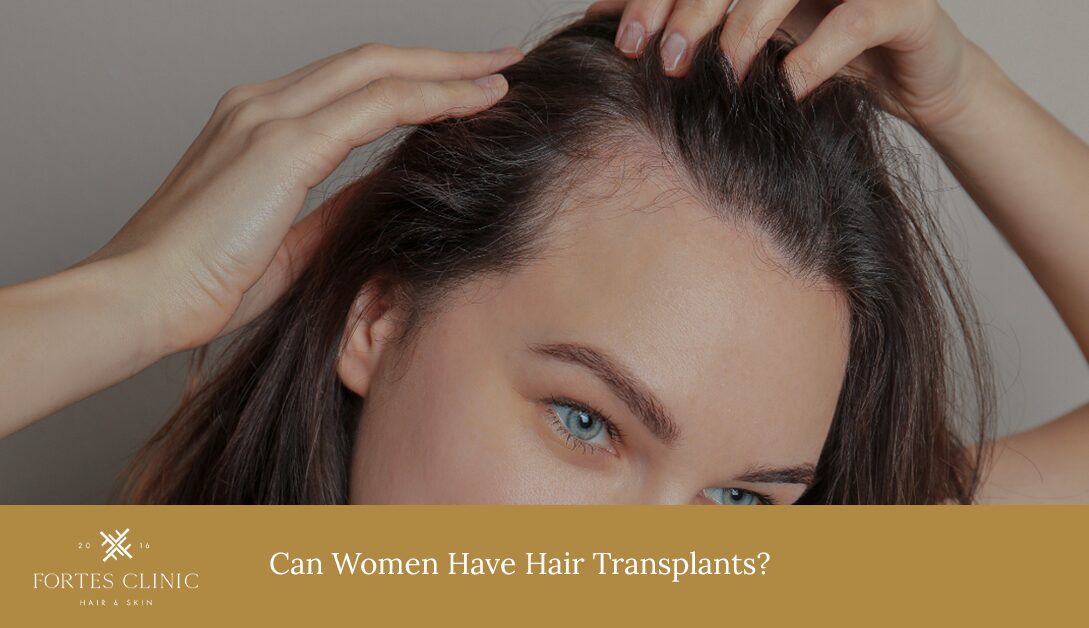Introduction
Hair transplants are a well-established solution for male pattern baldness, but their application for women is less commonly discussed. This article explores the possibility and intricacies of hair transplants for women, shedding light on the process, suitability, and outcomes.
Understanding Hair Transplants
What are Hair Transplants?
Hair transplants involve moving hair follicles from a dense growth area (donor site) to areas with thinning or no hair (recipient site). This procedure is gaining traction among women who experience hair thinning or loss.
History and Evolution of Hair Transplant Techniques
Originally developed to address male baldness, hair transplant techniques like Follicular Unit Transplantation (FUT) and Follicular Unit Extraction (FUE) have evolved. Technological advancements have made these procedures more refined, increasing their suitability for women with different hair loss patterns.
Hair Loss in Women: Causes and Patterns
Common Causes of Hair Loss in Women
A number of factors can contribute towards hair loss in women. These include genetics, hormonal imbalances (such as those due to menopause or polycystic ovary syndrome), and certain medical treatments. Stress and lifestyle factors also play a significant role.
Patterns of Female Hair Loss
Women typically experience a general thinning of hair across the scalp, unlike the receding hairline or bald spots common in men. This diffuse thinning pattern requires a different approach in hair transplantation.
Feasibility of Hair Transplants in Women
Suitability of Hair Transplants for Women
Not all women with hair loss are ideal candidates for hair transplants. The effectiveness depends on the quality and density of the donor hair and the type of hair loss experienced.
Assessment Criteria for Female Candidates
A detailed examination by a hair transplant specialist is essential. This includes assessing the donor hair’s quality, understanding the underlying cause of hair loss, and discussing the patient’s overall health and medical history.
Types of Hair Transplant Techniques
Follicular Unit Transplantation (FUT) and Follicular Unit Extraction (FUE)
FUT involves removing a strip of hair-bearing skin from the back of the scalp and extracting individual follicular units for transplantation. FUE, on the other hand, involves the direct extraction of individual hair follicles, leaving minimal scarring.
Comparing FUT and FUE for Women
For women, FUE is often preferred due to the flexibility of hairstyle options post-surgery, including the ability to wear hair short without visible scarring.
The Hair Transplant Procedure for Women
Pre-operative Assessment and Planning
This stage involves mapping out the area for transplantation, considering factors like hairline design, density goals, and natural hair growth patterns.
The Transplant Process
The surgery is typically performed under local anaesthesia. Meticulous care is taken to implant hair follicles in a way that mimics natural hair growth.
Post-operative Care and Recovery
Recovery involves following specific care instructions to ensure optimal healing and hair growth, such as avoiding strenuous activities and direct sunlight exposure.
Results and Expectations
What to Expect: Realistic Outcomes
It’s vital for women considering hair transplants to set realistic expectations. The goal is to achieve a natural-looking increase in hair density. It’s important to note that results vary based on individual factors like hair texture and growth rate.
Timeframe for Hair Growth Post-Transplant
Initial hair growth can be expected within a few months after the procedure. However, it usually takes up to a year to see the full results of the transplant.
Risks and Considerations
Common Risks Associated with Hair Transplants
Risks include infection, scarring at the donor site, and the possibility of unnatural-looking results if not done expertly.
Special Considerations for Women
For women, hormonal changes and future hair loss patterns must be considered. It’s crucial to discuss potential future changes, such as those associated with menopause, with the specialist.
Alternative Treatments and Solutions
Non-Surgical Options for Female Hair Loss
Before considering a transplant, non-surgical options like topical minoxidil, hormone therapy, or laser treatments can be given consideration. These hair loss medications can be effective, especially in the early stages of hair thinning.
Lifestyle and Nutritional Adjustments
Improving hair health can also involve lifestyle changes like adopting a balanced diet rich in vitamins and minerals, reducing stress, and avoiding harsh hair treatments or styles that pull on the hair.
Choosing the Right Clinic and Specialist
Factors to Consider When Selecting a Clinic
When choosing a clinic, consider factors like the clinic’s reputation, the experience of the specialists, and before-and-after photos of previous patients.
Importance of Consulting with a Specialist
A detailed consultation with a hair restoration specialist is crucial. This should include a discussion about the procedure, expected results, and any risks involved.
Get in Touch with Fortes Clinic
Are you considering a hair transplant or seeking advice on managing hair loss? At Fortes Clinic, we understand that each individual’s journey with hair health is unique. Our team of experienced specialists is dedicated to providing personalised care and expert guidance tailored to your specific needs.
Why Choose Fortes Clinic?
- Expertise and Experience: Our clinic boasts a team of highly-skilled professionals. They are all adept in the latest hair transplant techniques and hair loss treatments. They are committed to ensuring you receive the highest standard of care.
- Comprehensive Consultation: We believe in informed decisions. Our consultations are thorough, allowing us to understand your specific situation, discuss potential treatments, and answer any questions you may have.
- State-of-the-Art Technology: Fortes Clinic utilises cutting-edge technology in hair restoration. This ensures that you benefit from the most advanced procedures available today.
- Tailored Solutions: Recognising that every case of hair loss is different, we offer bespoke solutions designed to meet your individual needs and expectations.
- Supportive Environment: We provide a warm, welcoming atmosphere where your comfort and privacy are our top priorities. Our staff is here to support you every step of the way.
Your Journey to Fuller Hair Starts Here
Embarking on the path to hair restoration is a significant decision. At Fortes Clinic, we are here to provide clarity, offer support, and guide you through the process with professional care and expertise. Whether you’re just beginning to explore hair transplant options or are ready to take the next step, our team is here to assist you.
Contact Us Today
We invite you to reach out to us to schedule a consultation or to simply learn more about our services. You can contact us through our website, via email, or by calling our clinic directly. Let’s discuss how we can help you achieve your hair restoration goals and regain your confidence.
At Fortes Clinic, your hair health journey is in capable hands. We look forward to being a part of your transformation.



